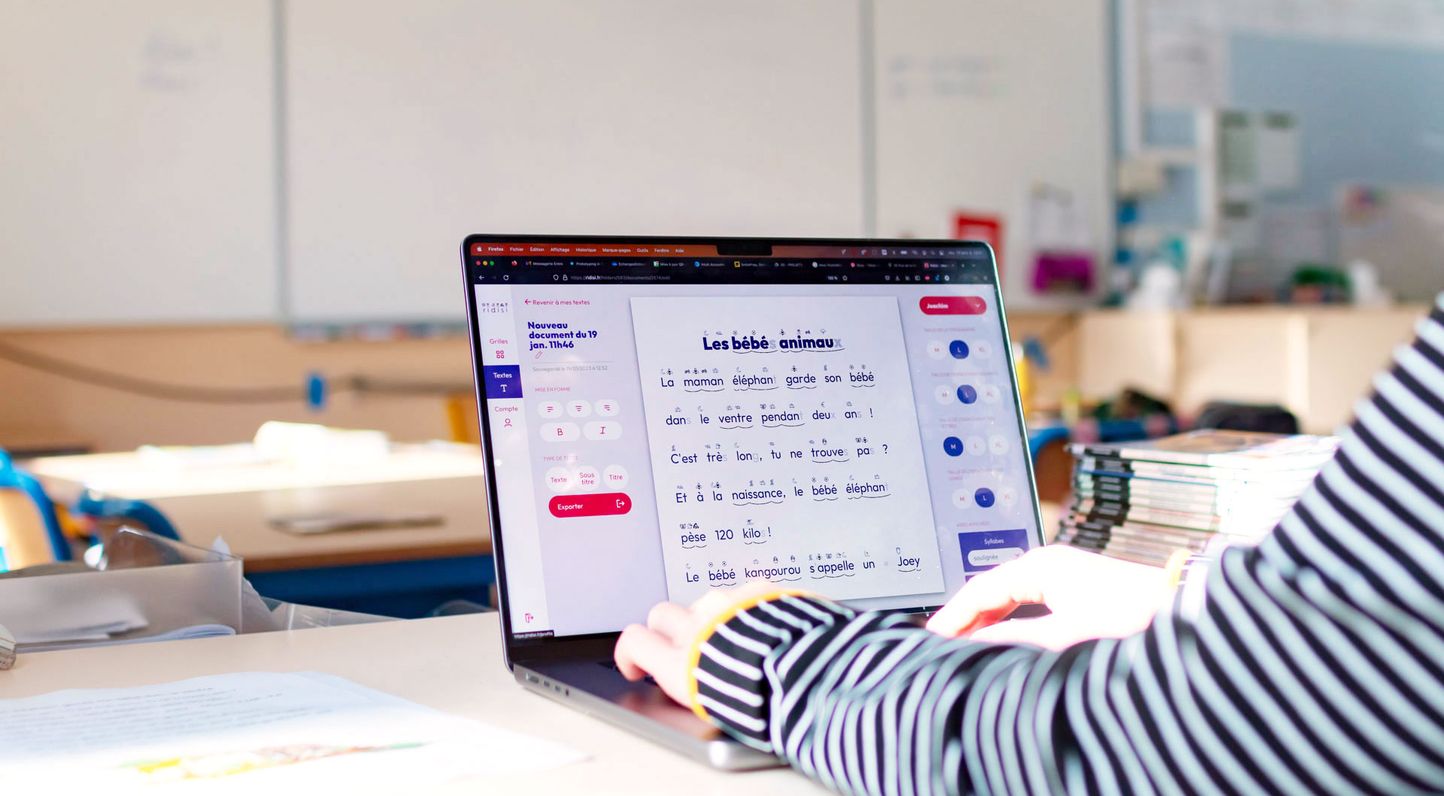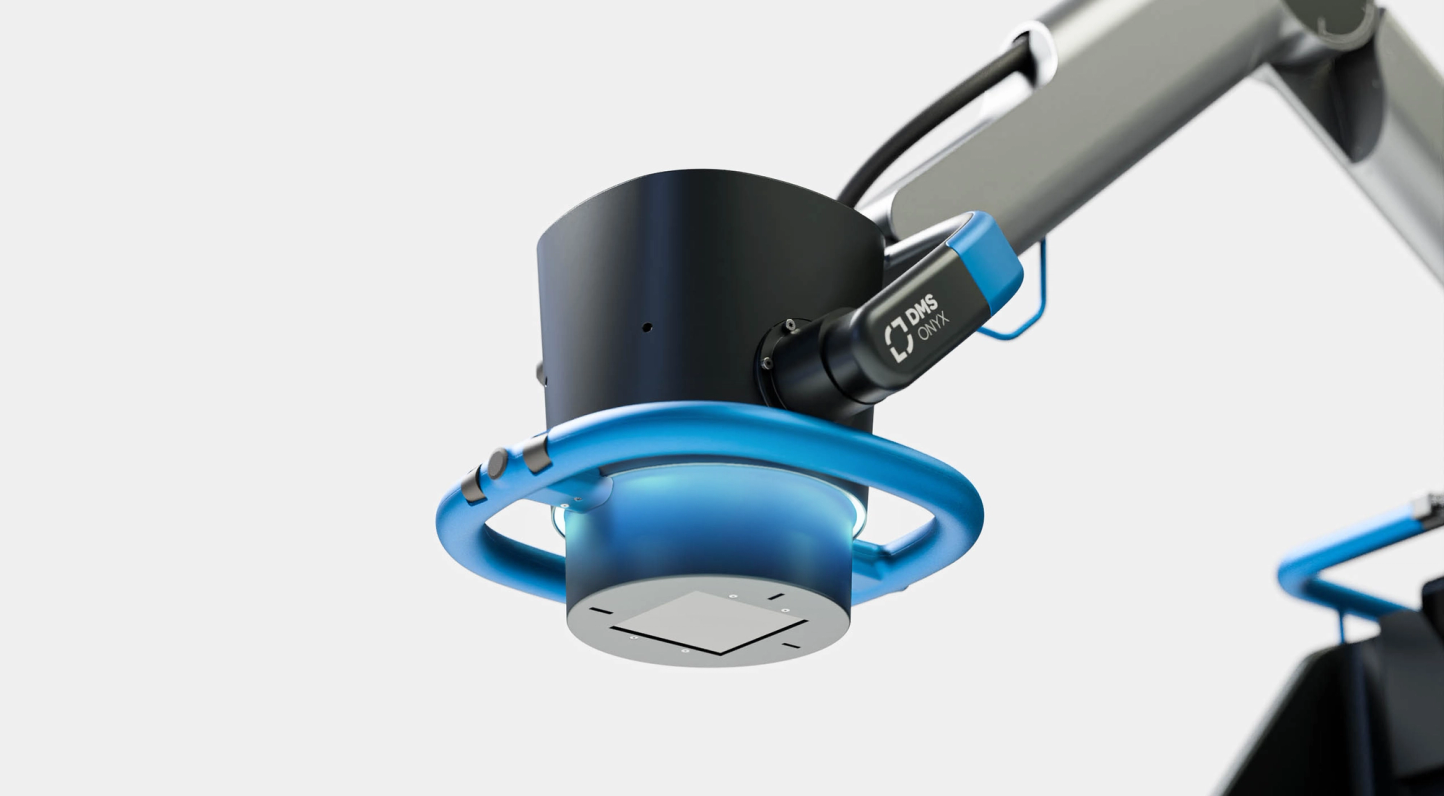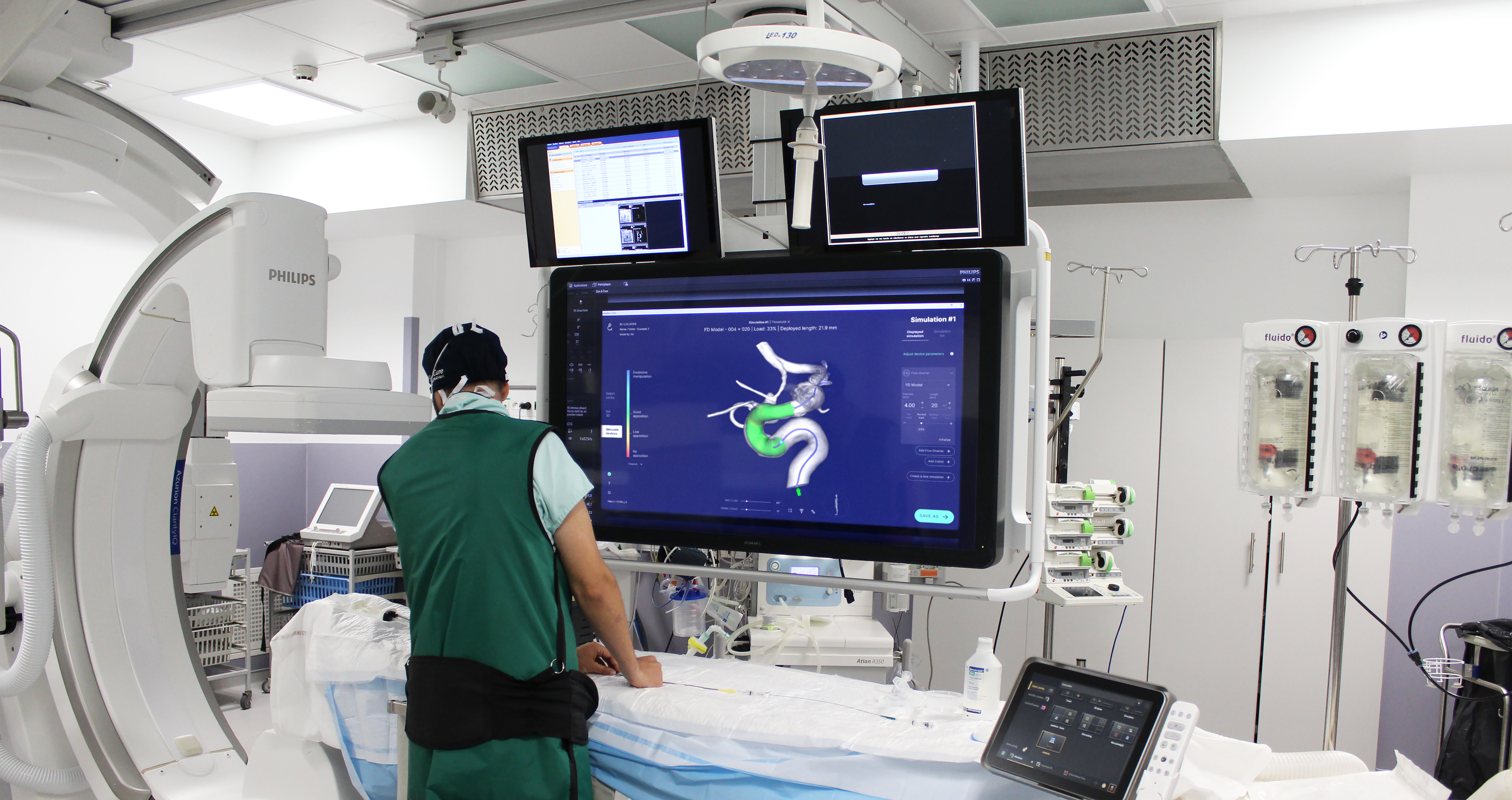
Translating the clinical accuracy of Sim&Size
01.Brief
Sim&Cure, an innovative player in the medical field, asked us to design their flagship tool, Sim&Size, an application used to treat patients with cerebral aneurysms. The request focused on a complete overhaul of the user interface, with a clear objective: to align the perceived quality of the tool with its recognized clinical precision. The challenge was to simplify the use of the application while enhancing its automated functionalities, ensuring that the user experience was fluid and intuitive. In addition, several constraints had to be taken into account: the risk management integrated in previous versions had to be adapted to the new design, all existing usage scenarios had to be redesigned to offer more natural workflows, we had to anticipate and limit the technical constraints to facilitate implementation.
02.Align the perceived quality of the tool with its clinical precision
We started with a study of uses at the very heart of an operating room, which allowed us to identify all the functionalities and the friction points.


Three axes then guided the design:
- Clarity and attractiveness: improvement of the hierarchy of information on the screens, addition of notifications, clarification of the steps — to make the simulation calculation more readable.
- Clinical effectiveness: simplification of interactions (reduction of clicks, CTA), strengthening trust and highlighting key information.
- Membership: facilitating adoption by new users, with functionalities adapted to healthcare IT environments and support for collaboration between practitioners via data sharing.
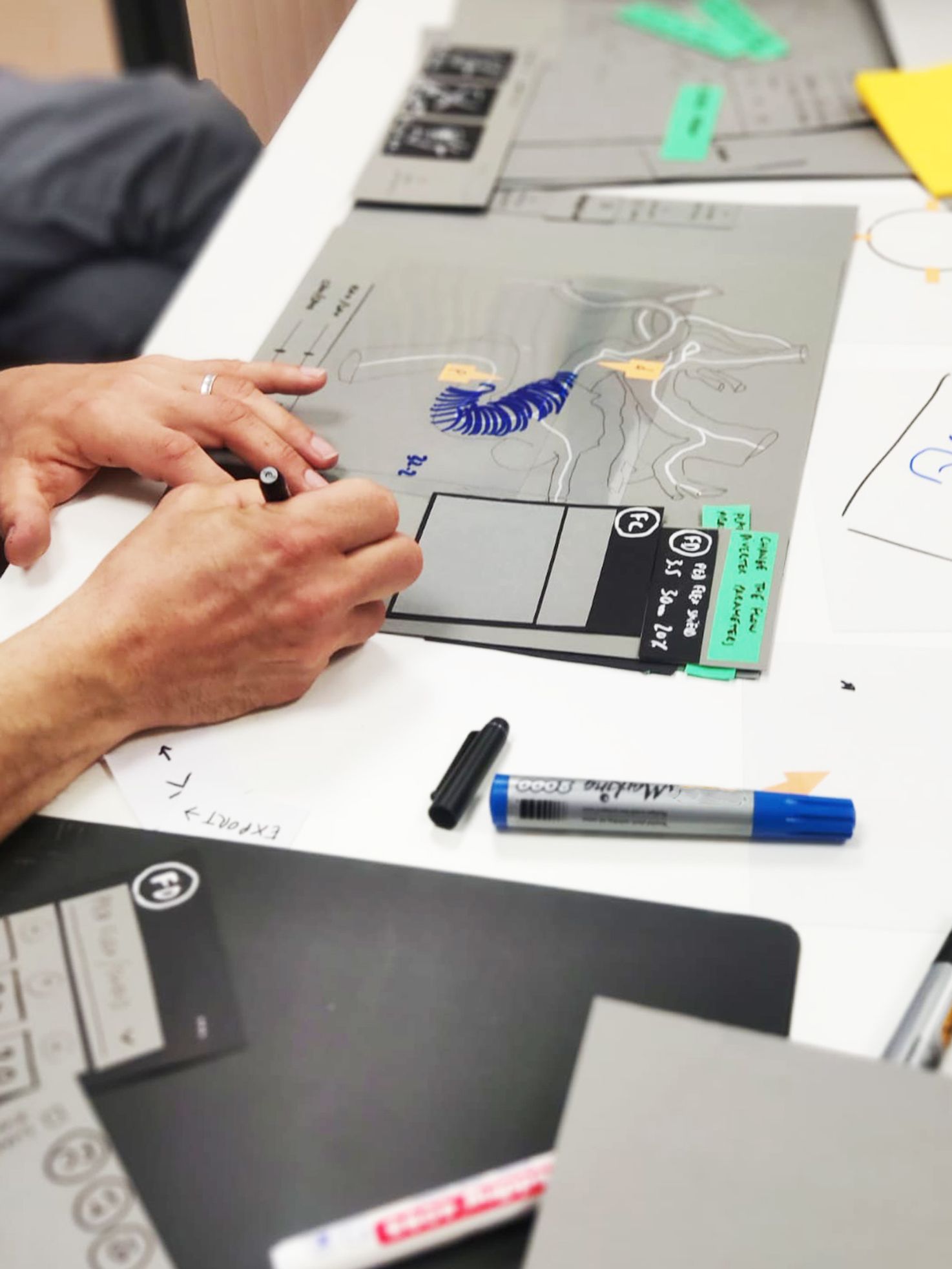
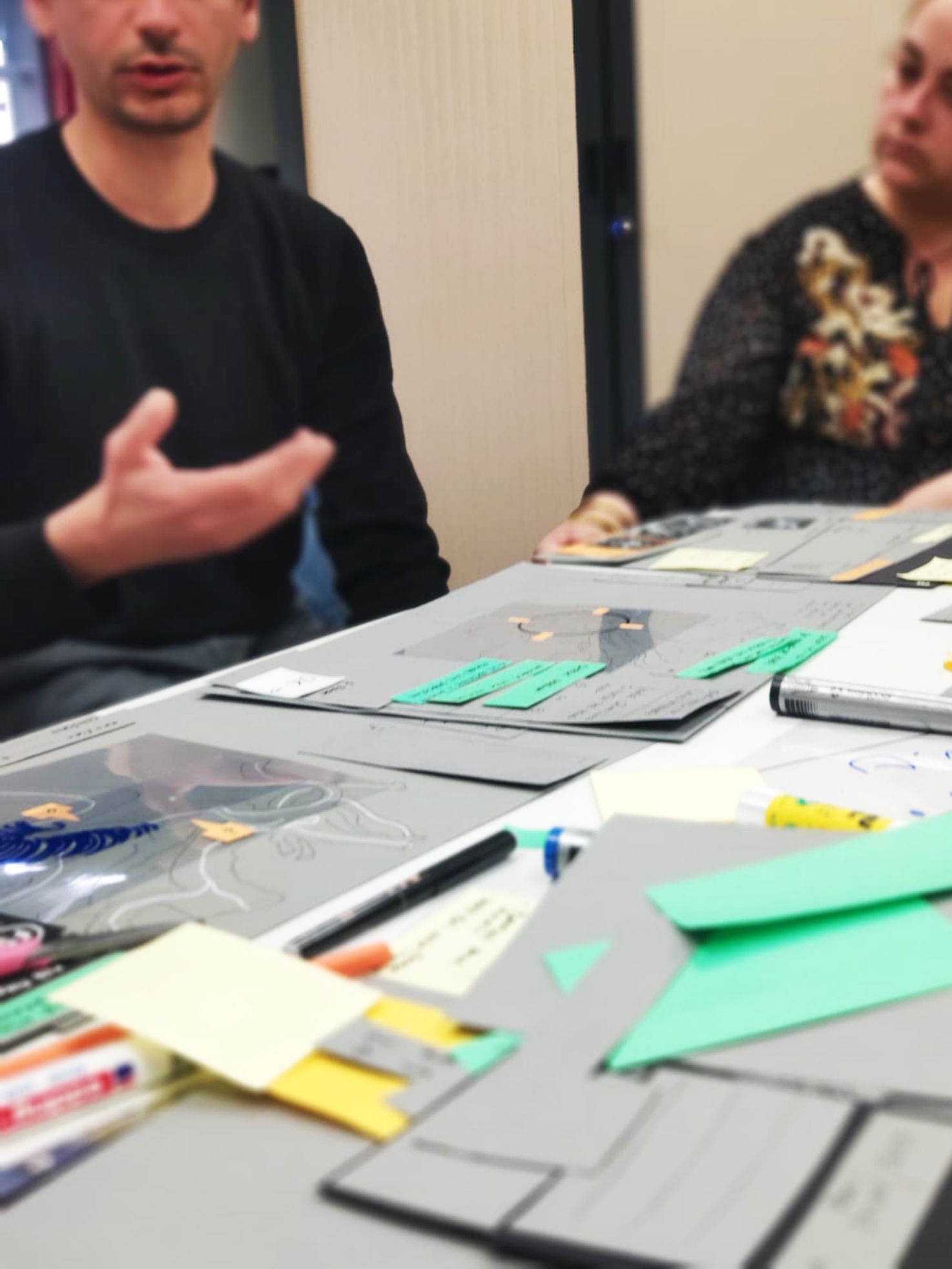
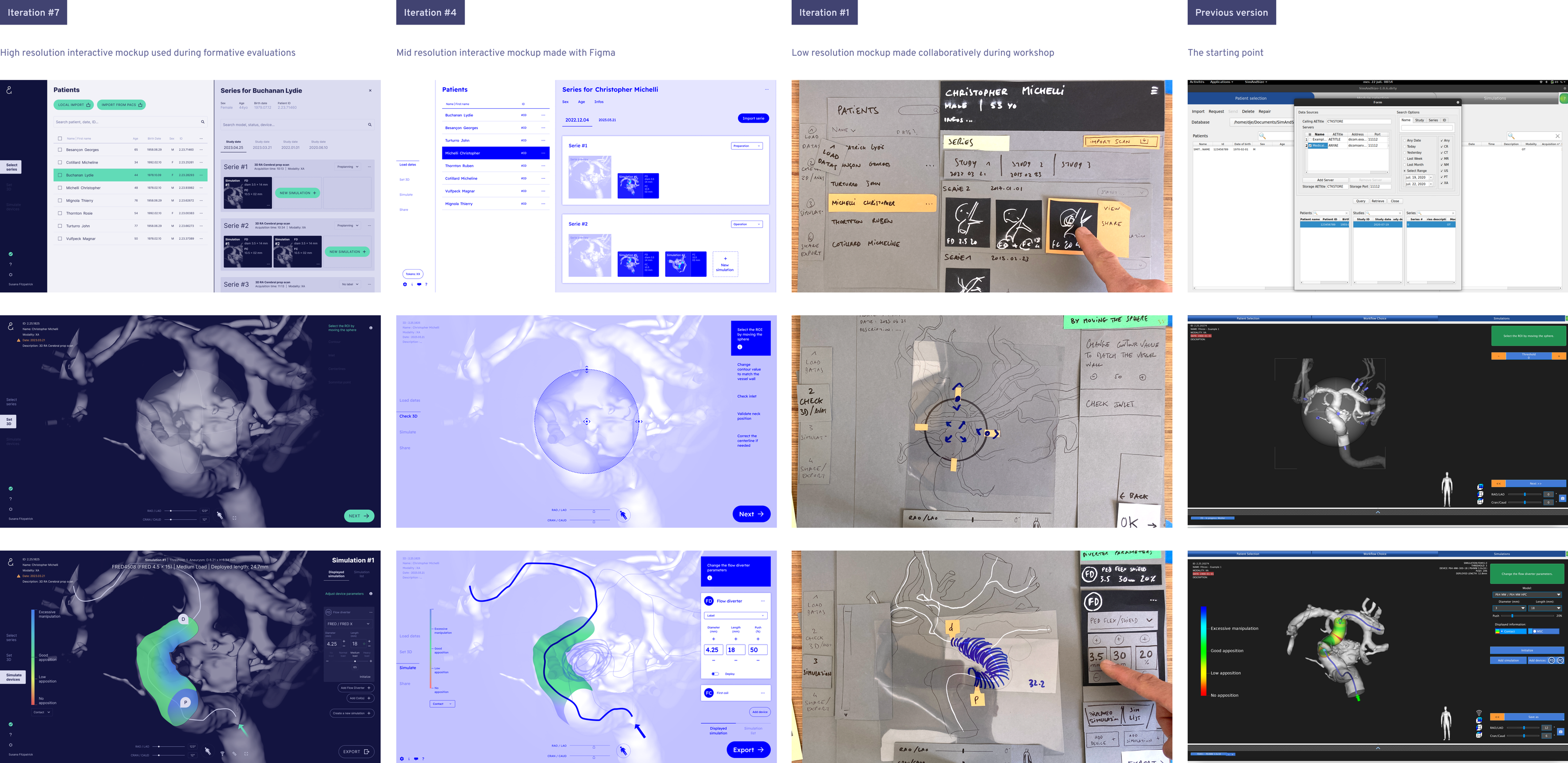
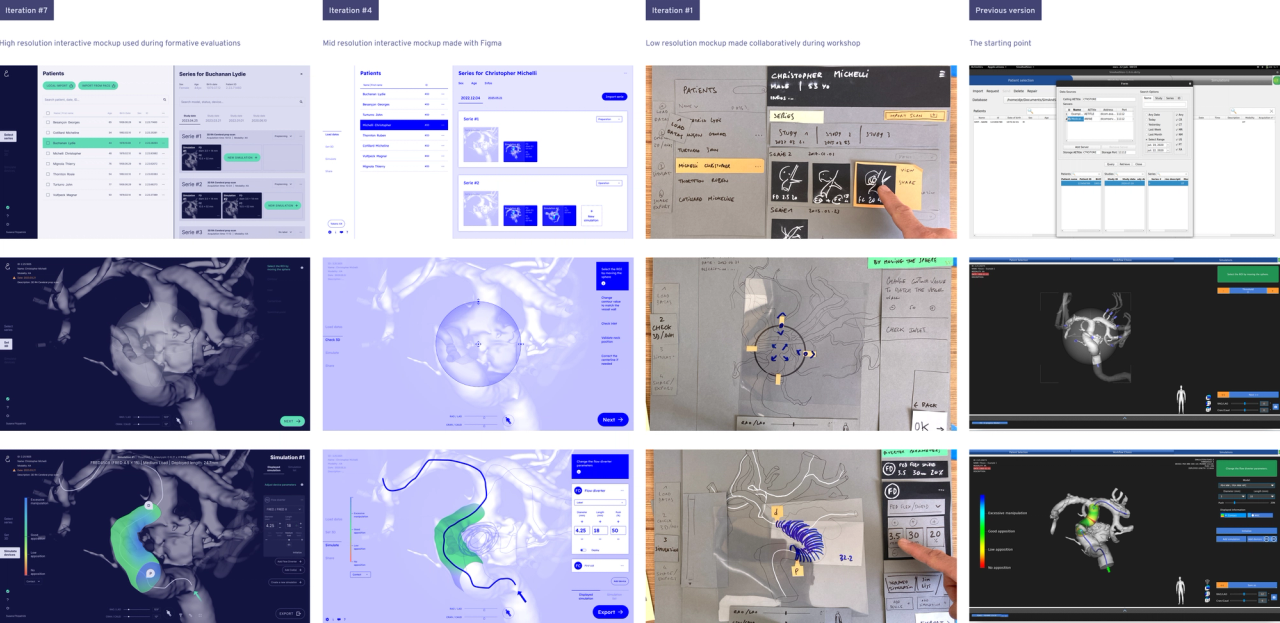
The detailed models were mainly used to carry out formative evaluations: this made it possible to collect validations from users before developing the software, thus speeding up the improvement process. Through this approach, targeted adjustments were made, reducing technical implementation risks.
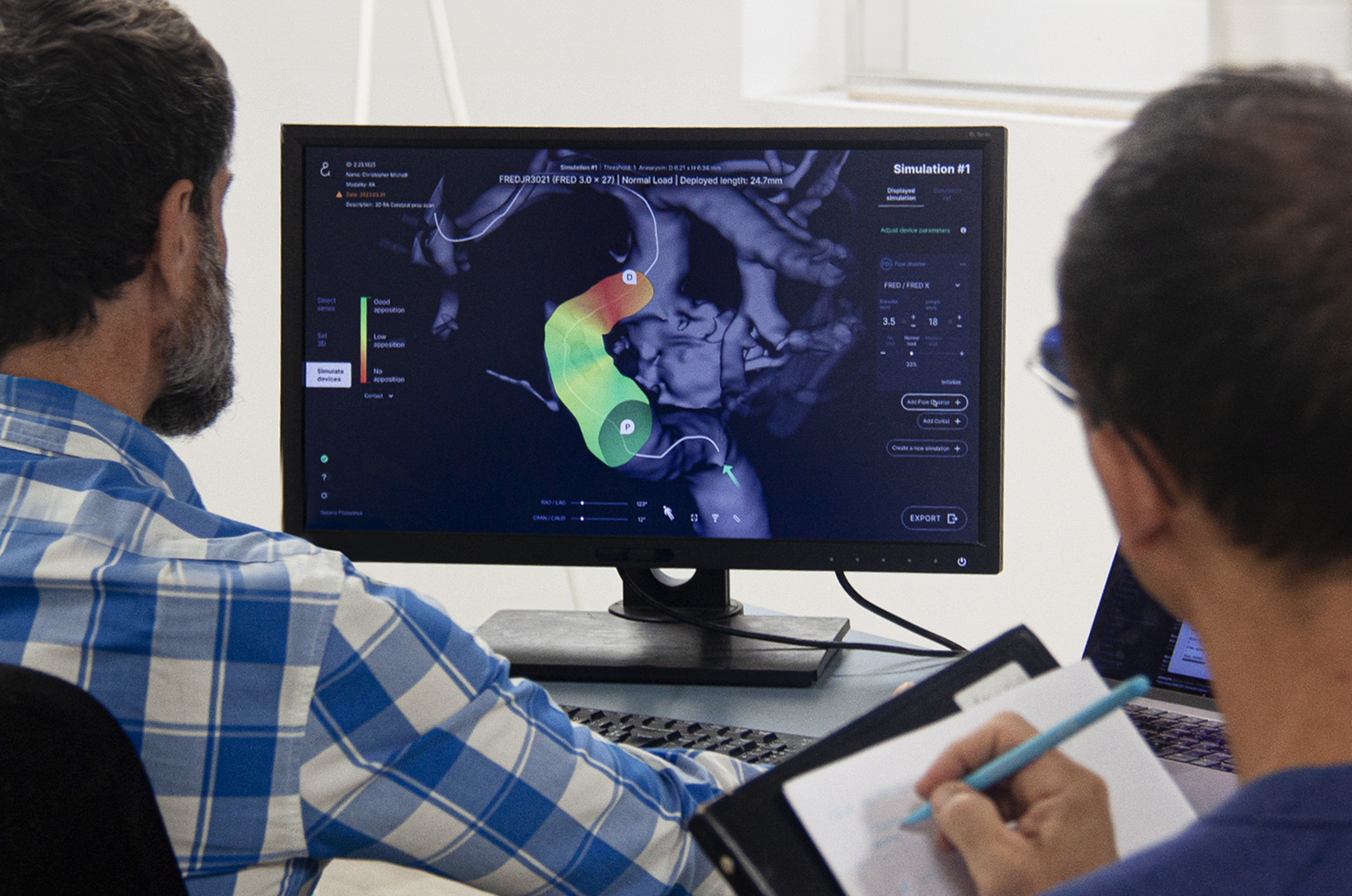
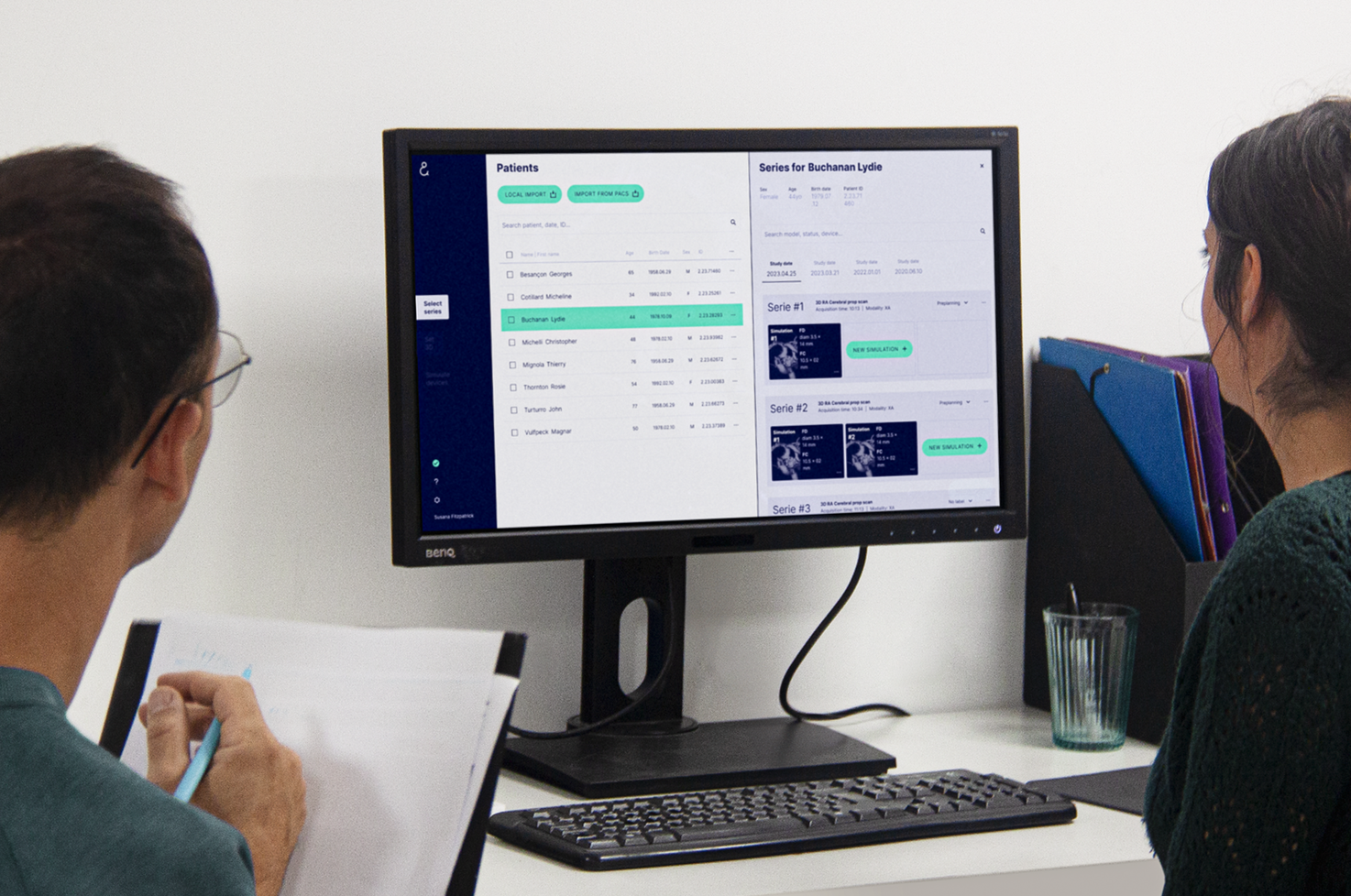
The models served as support for formative evaluations
Feedback from end users on the developed version was very positive: the perceived quality of the application has significantly improved, reinforcing Sim&Cure's image of clinical excellence. And for the internal teams, the feeling of working on a product that was both beautiful and effective was a real motivating factor. The integration of an iterative approach in this project once again proves that design is not only a matter of aesthetics and desirability: it is also a strategic lever for advancing innovation in the health sector.
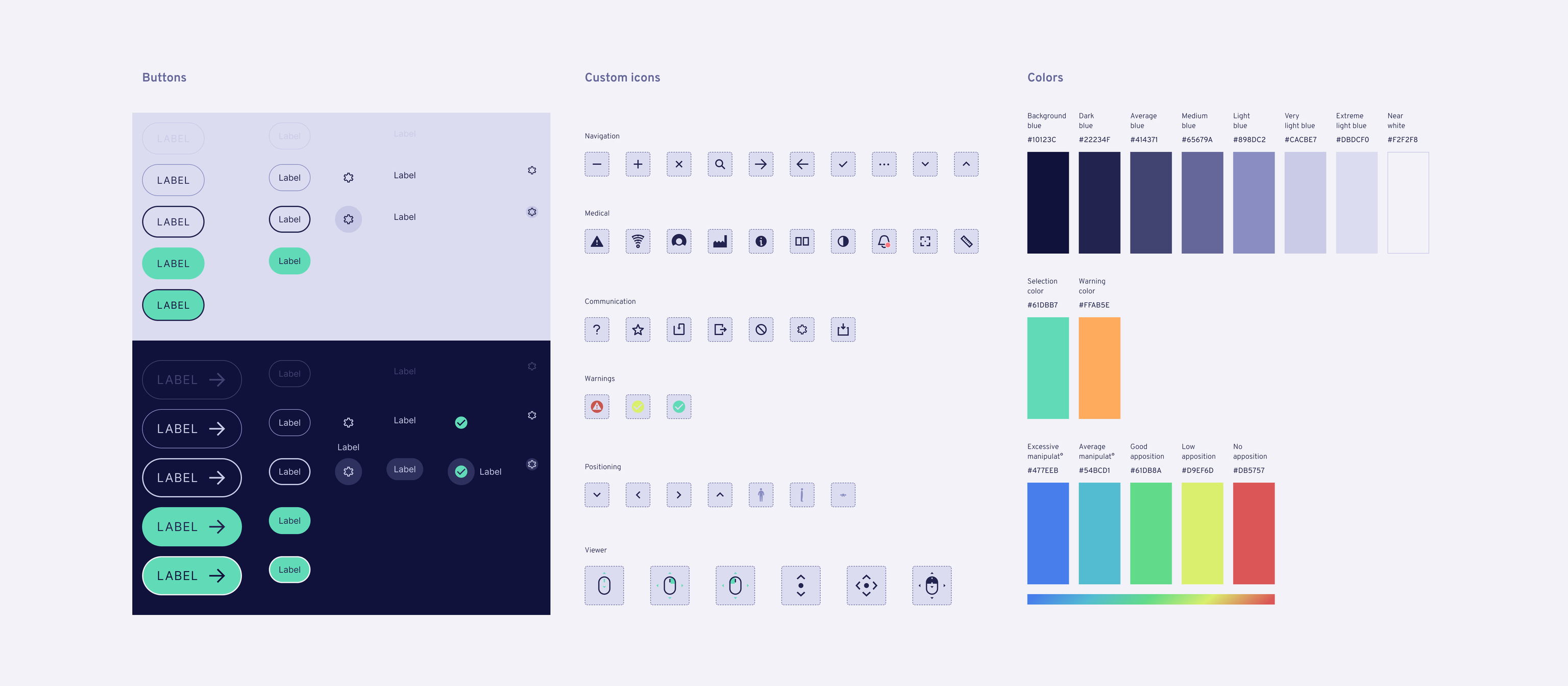
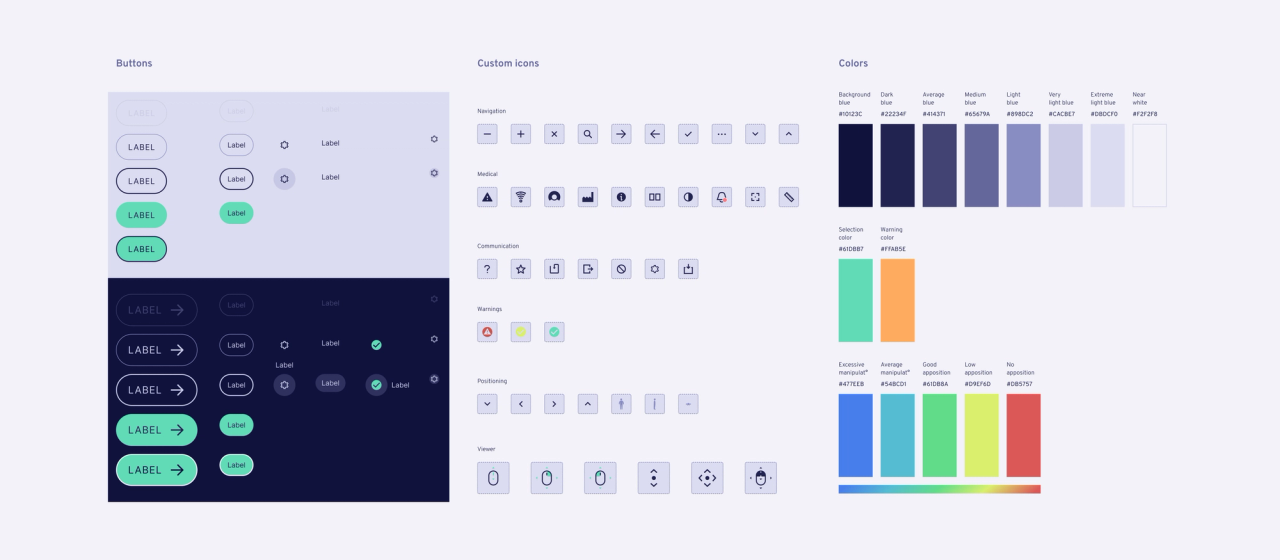
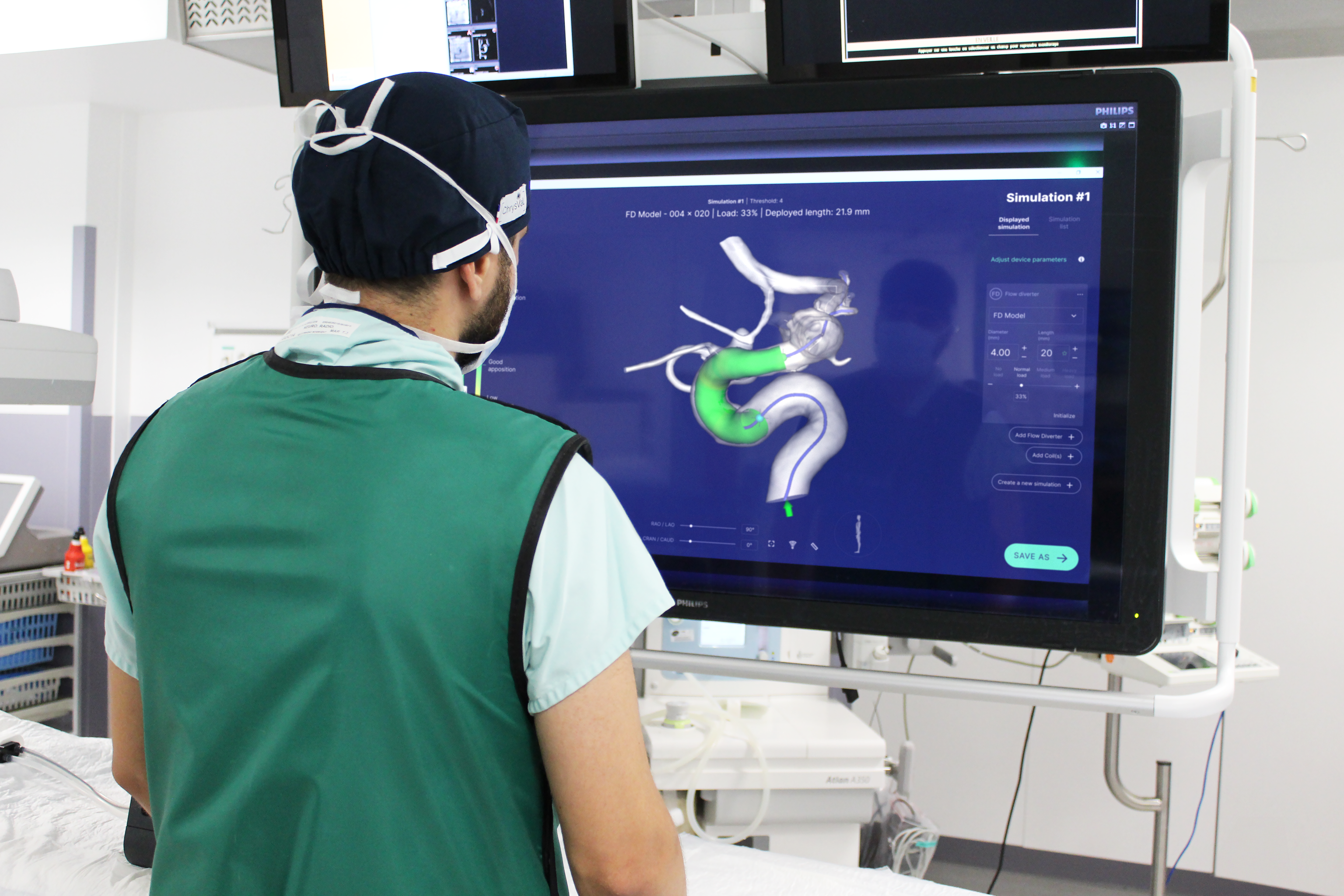
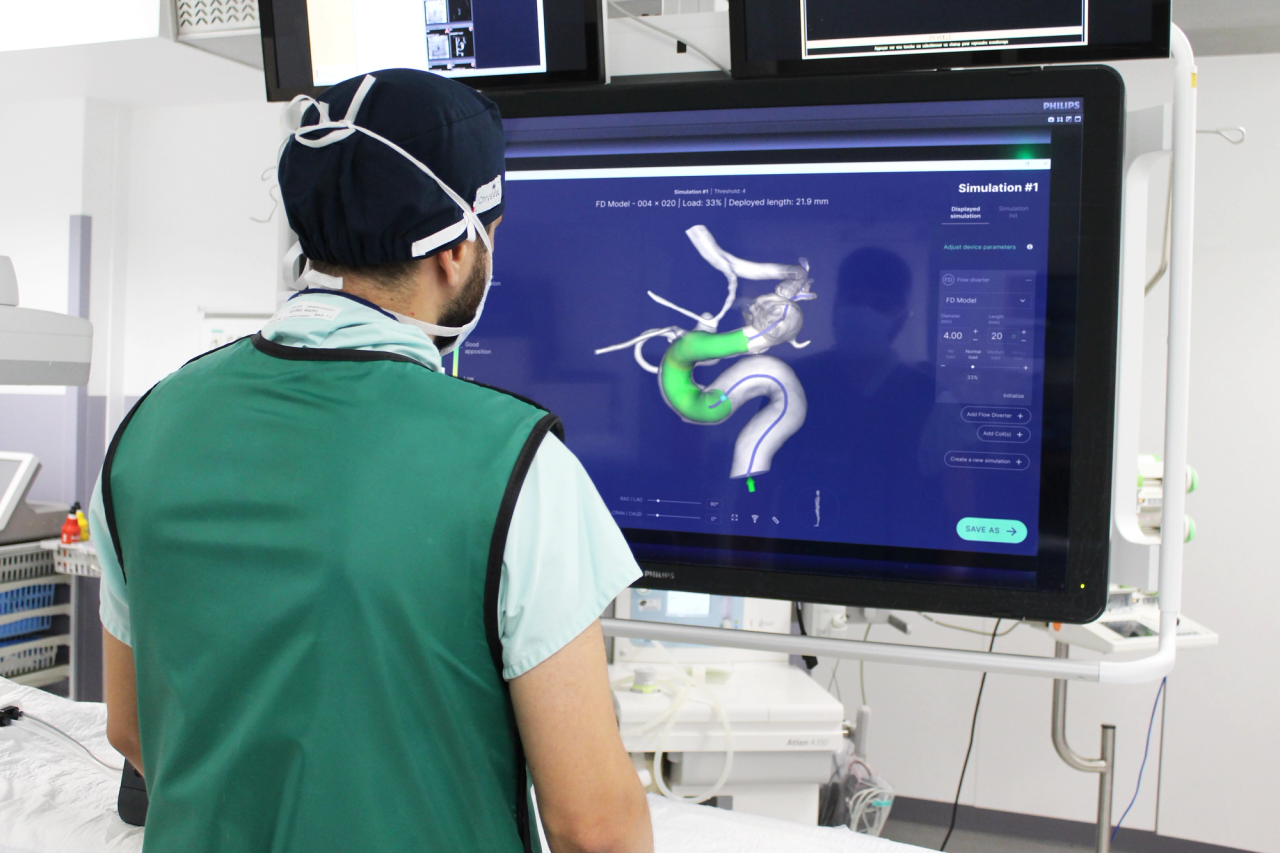
Result
Positive impact
An improved experience, to reduce risks and increase the quality of care.
Simplicity
Simplified and unified interactors, to prioritize the reading of anatomy.
Satisfaction
Une nouvelle interface plébiscitée par ses utilisateurs et ses prescripteurs.

